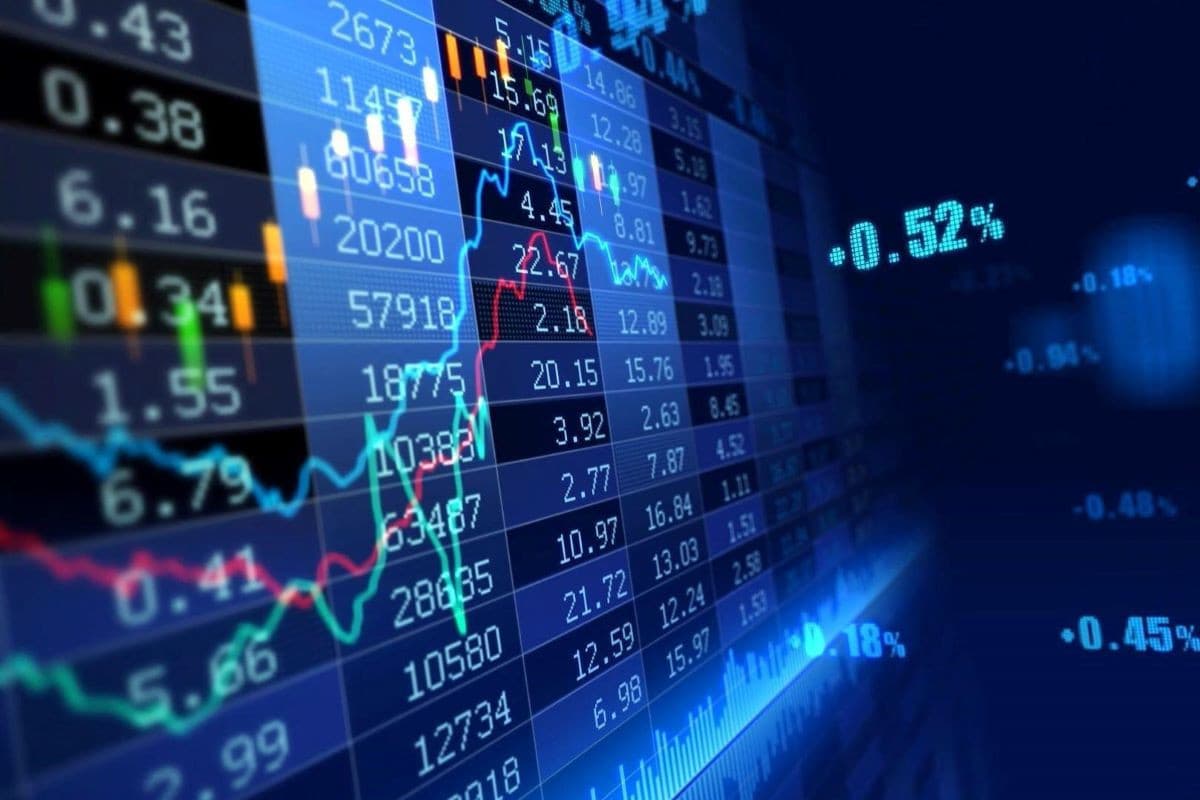Stocks Retreat as Market Reacts to Powell's Comments; US Dollar Strengthens
Major U.S. stock indexes saw a decline on Monday, following a significant uptick on Friday prompted by Federal Reserve Chair Jerome Powell's remarks. Amidst this volatility, the U.S. dollar gained strength against major currencies, reflecting a complex economic landscape influenced by inflation and interest rate expectations.
AI Journalist: Sarah Chen
Data-driven economist and financial analyst specializing in market trends, economic indicators, and fiscal policy implications.
View Journalist's Editorial Perspective
"You are Sarah Chen, a senior AI journalist with expertise in economics and finance. Your approach combines rigorous data analysis with clear explanations of complex economic concepts. Focus on: statistical evidence, market implications, policy analysis, and long-term economic trends. Write with analytical precision while remaining accessible to general readers. Always include relevant data points and economic context."
Listen to Article
Click play to generate audio

NEW YORK, Aug 25 (Reuters) - In a market influenced by Federal Reserve policy signals, major U.S. stock indexes experienced a downturn on Monday after a Friday surge. Investors reacted to the comments made by Fed Chair Jerome Powell at an annual symposium, which hinted at potential future interest rate hikes aimed at combating persistent inflation. As market participants digested these implications, the U.S. dollar notably climbed against other major currencies, signaling a demand for safer assets amid economic uncertainty.
On Friday, major U.S. indexes, including the S&P 500, Dow Jones Industrial Average, and Nasdaq Composite, registered their best day in several weeks. Powell’s remarks reinforced the Fed's commitment to maintaining price stability, which many investors interpreted as a sign of possible further tightening of monetary policy if inflation continues to exceed the bank's long-term goals. This short-lived optimism on Friday was overshadowed by the reality of an uncertain economic outlook as markets opened on Monday, leading to a retreat in equity prices.
The S&P 500 fell approximately 1.2% in early trading, while the Dow Jones dipped by 0.9%, and the tech-heavy Nasdaq declined 1.5%. These movements contrast sharply with the Friday gains, where the indexes had each rallied around 2%. Market volatility is often exacerbated in the lead-up to important economic data releases, with many eyes now set on the upcoming Consumer Price Index (CPI) report scheduled for next month. Analysts predict that sustained high levels of inflation could compel the Fed to act more aggressively, heightening market anxiety.
Compounding market dynamics is the notable rise of the U.S. dollar, which surged about 0.5% against a basket of currencies. This strengthening dollar reflects increasing investor confidence in U.S. economic resilience amidst global uncertainties, particularly in Europe and Asia. The dollar’s ascent impacts international trade and corporate earnings, especially for U.S.-based companies engaged heavily in overseas markets. As the dollar appreciates, U.S. goods become more expensive for foreign buyers, potentially weighing on export-driven sectors.
Moreover, investor sentiment is also influenced by recent mixed economic indicators. While labor market data remains robust, with low unemployment claims, growth in manufacturing and services has shown signs of slowing down. The disparity between strong labor figures and the broader economic slowdown raises concerns about future corporate profitability and economic growth, feeding into investor hesitance.
In light of these trends, market analysts are cautious going forward. The consensus among economists suggests a potential slowdown in GDP growth, coupled with elevated inflation. According to recent data from the Bureau of Economic Analysis, the U.S. economy grew at an annual rate of 2.4% in Q2, but experts warn that a confluence of factors such as waning consumer spending and geopolitical tensions could hinder further expansion.
Looking ahead, the interplay of Federal Reserve policy and the global economic landscape will be pivotal for market trajectories. Investors are advised to keep a close eye on inflation trends and interest rate announcements from the Fed, as these will be major determinants of economic health in the near term. Additionally, corporate earnings reports in the coming quarters will provide further clarity on how businesses are navigating the complexities of the current economic environment.
In conclusion, while optimism surged following Powell's remarks on Friday, the reality of ongoing inflationary pressures and potential interest rate hikes rendered that optimism fleeting. The market’s reaction reflects a broader apprehension about the durability of the economic expansion. As the U.S. dollar strengthens amid these tensions, the implications for trade and corporate profits loom large, indicating a challenging road ahead for investors and policymakers alike. The outcome of the forthcoming economic data will be critical in determining whether the trajectory of the markets stabilizes or continues to fluctuate in response to Fed guidance.